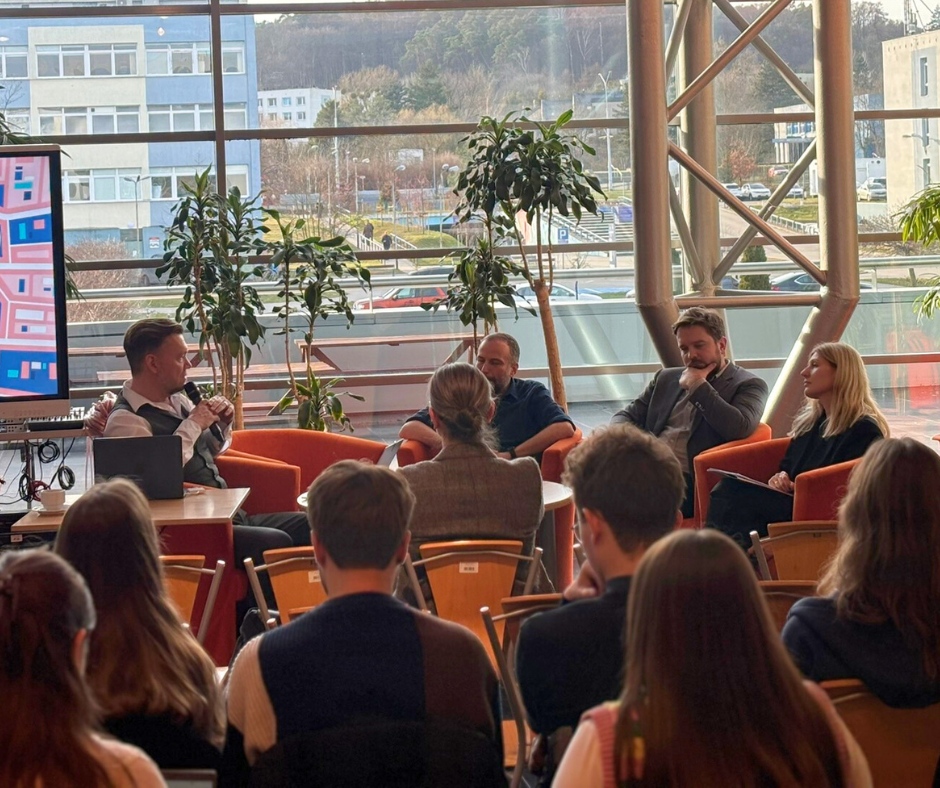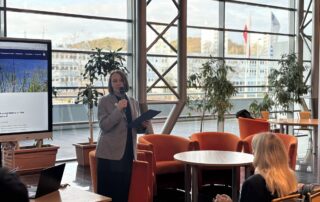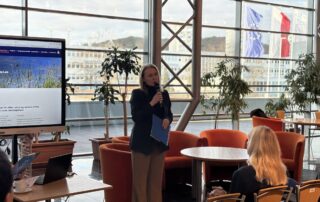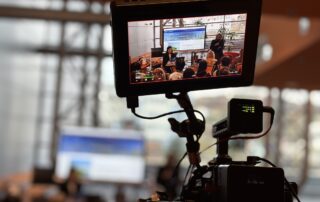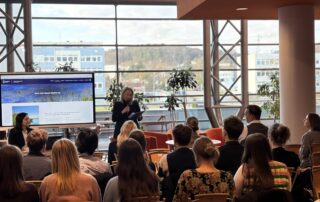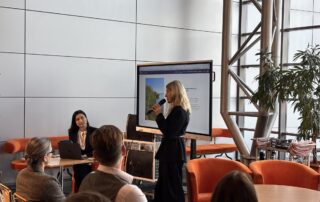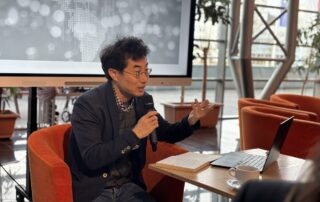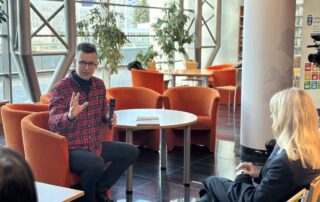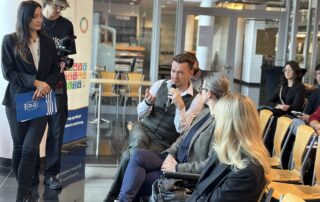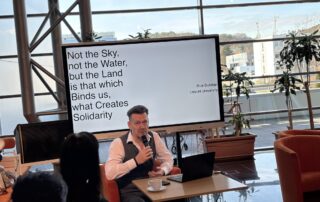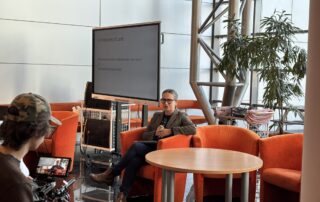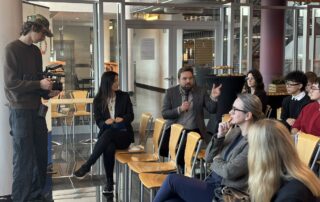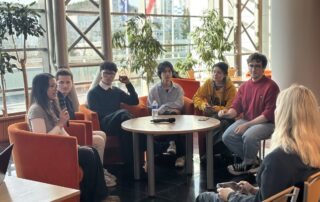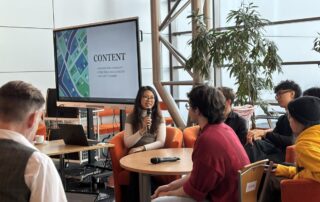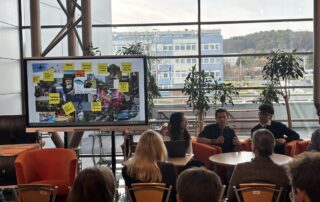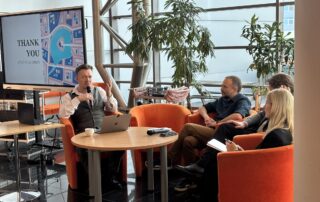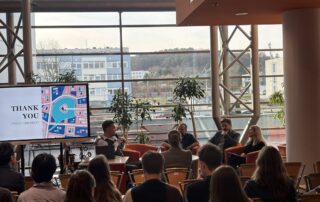On 30 January 2025, the inaugural symposium of the More-than-Human Studies Lab took place at the University of Gdansk Library . The initiative, implemented as part of the UG Centre for Sustainable Development, brings together academia, arts organisations and NGOs, focusing on the search for new scenarios for life on Earth in the face of 21st century challenges. The programme is coordinated by Irena Chawrilska, PhD.
The Opening Symposium, titled “New Solidarities in the More-than-Human World”, brought together students, faculty, and interested participants for a thought-provoking exchange. Two keynote speakers, Professor Alex Taek Gwang Lee from Kyung Hee University (South Korea) and Professor Rick Dolphijn from Utrecht University (Netherlands), focusing respectively on the relationship between man and machine, and the relationship between man and nature.
Professor Lee’s talk, “Weak Technologies”, examined the relationship between humans and machines, calling for a shift away from technologies designed to dominate us (like AI) towards those that foster creativity and imagination. Professor Dolphijn, in “Not the Sky, Not the Water, But the Land is What Binds Us, What Creates Solidarity”, addressed the modern tendency to overlook the Earth, urging a more profound appreciation of the land that sustains us, forms our memories, and shapes our collective identity.
In a continued search for ways to put more-than-human solidarities into practice, a series of student presentations were showcased, highlighting projects and experiments undertaken over the past years— relating this to their visit to Gdańsk. The day ended with a roundtable discussion exploring the relationship between humans, technology, and nature, with a special focus on the Gdańsk region.
We were joined by Martyna Jastrzębska from the Intermedia Studio at the Academy of Fine Arts in Gdańsk, Bartosz Rief from the European Solidarity Centre, Kacper Nosarzewski from 4CF/The Futures Literacy Company, and Dr. Irena Chawrilska, chair of the More-than-Human Studies Lab at the University of Gdańsk. Each shared how more-than-human solidarities were present in their work, stressing the need for a paradigm shift towards more inclusive, ecological practices. They also addressed the challenges and anxieties surrounding the abandonment of old habits and the embrace of new perspectives.
Dr. Chawrilska closed the discussion by highlighting the importance of a more-than-human perspective in her Horizon 2020 project, CONVIVIUM, which emphasizes the concept of ‘living together’ not only in research but also in project organization. The initiative integrates more-than-human voices in the solutions suggested, but also into the decision-making process, ensuring that solutions are both sustainable and inclusive.
The symposium ended with an open invitation to foster transdisciplinary cooperation and connect with the many inspiring, more-than-human initiatives already taking root in the Gdańsk region. From the arts to policy-making and museums, the region is well poised to embrace new solidarities in the 21st century.


